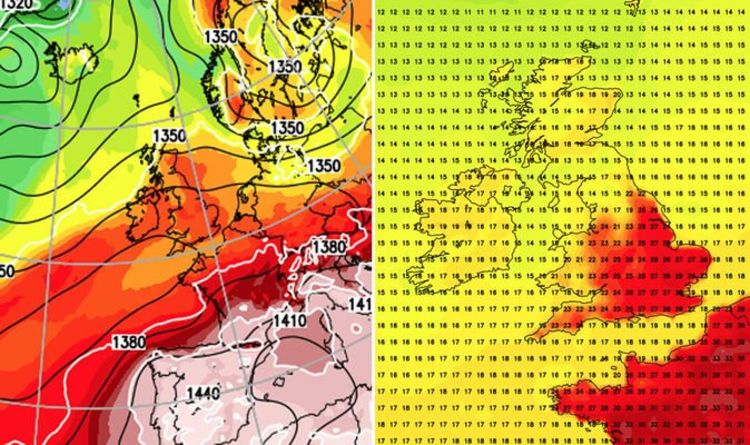
Introduction
The UK is bracing for a significant heatwave in the coming days, with temperatures set to exceed seasonal averages. As climate patterns shift and weather phenomena become more extreme, understanding the implications of a heatwave is essential for public health, infrastructure management, and daily activities. The National Weather Service (NWS) has issued alerts and advisories across various parts of the country to inform residents of what to expect.
Details of the Forecast
According to the latest reports from the Met Office, a high-pressure system is expected to bring hot air from continental Europe, leading to maximum temperatures climbing into the high 30s Celsius. For instance, the South East and East Anglia regions are anticipated to experience the highest temperatures, reaching upwards of 35°C in some areas. The heatwave is forecasted to begin on Thursday and could last through the weekend, with a potential rise in overnight temperatures as well.
Warnings and Safety Measures
With the onset of this heatwave, health warnings have been issued, particularly for vulnerable groups. The NHS has advised elderly individuals, young children, and those with pre-existing health conditions to take precautionary measures. It is also recommended for the general public to stay hydrated, wear loose clothing, and avoid direct sunlight during peak hours. The advice from local authorities emphasizes staying indoors during the heat and checking on neighbours and vulnerable members of the community.
Impact on Daily Life
This rising heat is expected to affect various sectors, including transportation, where delays and disruptions in services may occur due to track maintenance as rail companies prepare for high temperatures. Schools and workplaces are also adapting to the forecast, with some institutions considering adjusted hours or events to ensure safety and comfort.
Conclusion
As the UK prepares for the impending heatwave, it is crucial for residents to stay informed through official weather updates and heed advice from health authorities. With climate change leading to more frequent and severe weather patterns, understanding these forecasts has never been more important. Proper preparation can mitigate the risks associated with extreme heat, ensuring that the public remains safe while also taking advantage of what could be a pleasant summer spell.
You may also like

UK Weather: Moderate Snow Ice Warning in Effect
Current Weather in Manchester: What You Need to Know
Storm Bram: Key Weather Warnings and Safety Tips
SEARCH
LAST NEWS
- Remembering Wendy Richard: The Promise to Co-Star Natalie Cassidy
- How Did Anglian Water Achieve an ‘Essentials’ Rating for Mental Health Accessibility?
- Shai Hope Leads West Indies in T20 World Cup Clash Against South Africa
- What We Know About Weston McKennie: Future at Juventus and Past at Leeds
- What We Know About the Upcoming Live Nation Antitrust Trial